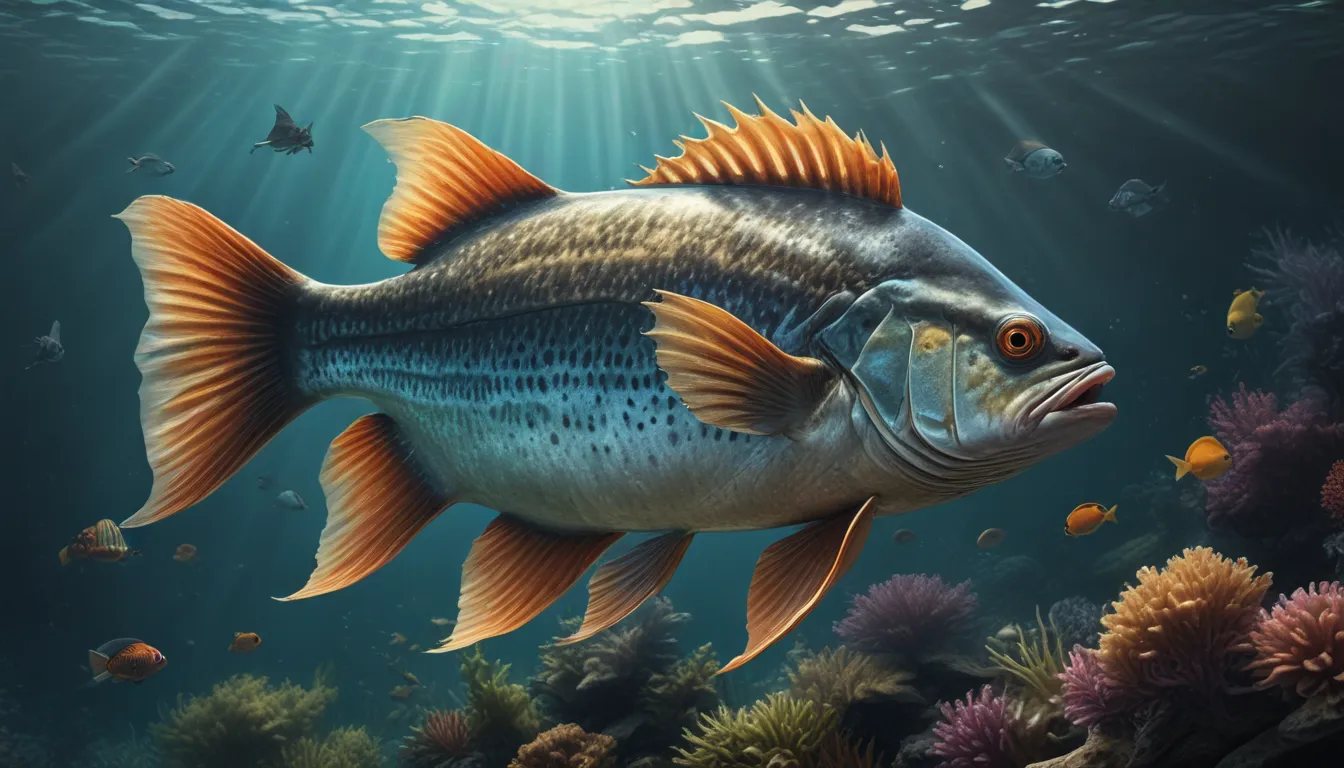A Note About Images: The images used in our articles are for illustration purposes only and may not exactly match the content. They are meant to engage readers, but the text should be relied upon for accurate information.
Welcome to the enchanting world of fish! These aquatic creatures have mesmerized humans for centuries with their unique adaptations and incredible diversity. Whether you are an aquarium enthusiast or an avid angler, there is always something new and surprising to learn about fish. In this article, we will explore eight astonishing facts that will ignite your curiosity and deepen your understanding of these fascinating creatures.
Unveiling the Wonders of Fish:
- Fish are incredibly diverse, with over 34,000 species ranging from sharks to colorful reef dwellers. Their unique shapes, sizes, and colors make them a captivating group of vertebrates.
- Some fish have the ability to change their sex, produce electricity, and even survive out of water. These remarkable adaptations and abilities make them truly astonishing creatures of the aquatic world.
The Fascinating World of Fish:
Fish are the most diverse group of vertebrates, with over 34,000 different species identified so far. From the fierce sharks to the colorful reef dwellers, fish come in an incredible array of shapes, sizes, and colors. Their diversity is a testament to the wonders of the natural world.
A History of Resilience:
Fish have been around for millions of years, with a rich evolutionary history dating back over 500 million years. They have survived numerous mass extinctions and have adapted to various aquatic environments, from freshwater rivers and lakes to deep ocean trenches. Their ability to thrive in different ecosystems showcases their resilience and adaptability.
The Chameleons of the Sea:
Some species of fish are known as sequential hermaphrodites, with the unique ability to change their sex during their lifetime. This adaptation allows them to adjust to changing environmental conditions and ensure successful reproduction. It is a fascinating aspect of fish behavior that highlights their remarkable flexibility.
The Gentle Giants:
The whale shark holds the title for being the largest fish in the world, growing up to lengths of over 40 feet and weighing more than 20 tons. These gentle giants feed on plankton and small fish and are found in tropical and warm oceanic waters. Their massive size and graceful movements make them a sight to behold in the ocean.
Electrifying Abilities:
Certain species of fish, such as electric eels and electric rays, have evolved the ability to generate and discharge powerful electric shocks. They use this unique ability for navigation, defense, and capturing prey. The electrifying capabilities of these fish showcase the diversity of adaptations in the aquatic world.
Sense of Smell:
Fish have a remarkable sense of smell, allowing them to detect odors in the water from miles away. This keen sense helps them find food, locate mates, and navigate through their habitats. Their sensitivity to smell is essential for their survival and plays a crucial role in their daily lives.
Communication Underwater:
Fish use various methods to communicate with other members of their species, including visual displays, body movements, color changes, and even sound production. These communication strategies help them convey messages, establish social hierarchies, and coordinate group behaviors. The intricate communication mechanisms among fish showcase their complex social interactions.
Adaptations for Survival:
Some fish species, like lungfish and mudskippers, have adapted to survive in environments with low oxygen levels or drying conditions. They can breathe air and move on land for extended periods, utilizing specialized respiratory organs. These adaptations allow them to thrive in challenging environments and highlight the resilience of fish as a group.
Exploring the Depths of the Ocean:
These eight astonishing facts about fish offer a glimpse into the captivating world of aquatic creatures. From their incredible diversity to their unique adaptations, fish continue to fascinate us with their remarkable features. The next time you encounter a fish, take a moment to appreciate the wonders of this ancient and diverse group of vertebrates.
Conclusion: Appreciating the Wonders of Fish
In conclusion, fish are truly fascinating creatures that play a vital role in our planet’s ecosystems. Their diversity, adaptability, and unique behaviors make them a subject of endless fascination and study. As we continue to explore the underwater world, we are sure to uncover even more astonishing facts about fish. Next time you observe a fish or dive into the depths of the ocean, take a moment to marvel at the incredible creatures that inhabit our planet’s waters.
FAQs About Fish:
Q: How many species of fish are there?
A: There are over 30,000 known species of fish, and scientists believe that there may be many more yet to be discovered.
Q: Can fish communicate with each other?
A: Yes, fish communicate with each other through a variety of methods including visual cues, sounds, vibrations, and chemical signals.
Q: Do all fish swim in the same way?
A: No, different species of fish have their own unique swimming behaviors and techniques. Some fish swim by flexing their bodies from side to side, while others use their pectoral fins to propel themselves forward.
Q: Can fish change their sex?
A: Yes, many species of fish are capable of changing their sex. This ability, known as sequential hermaphroditism, allows them to adapt to different reproductive strategies and increase their chances of survival.
Q: How do fish navigate in the water?
A: Fish use a variety of methods to navigate, including their keen sense of smell, their ability to detect changes in water pressure, and their sensitivity to Earth’s magnetic field.
Q: Can fish live in both saltwater and freshwater?
A: Yes, there are fish species that can live in both saltwater and freshwater. These fish are known as euryhaline species and have adaptations that allow them to tolerate different levels of salinity.
Q: Do all fish have scales?
A: No, not all fish have scales. Some species of fish, such as catfish and eels, have smooth skin instead of scales.
Q: Are all fish cold-blooded?
A: Yes, all fish are cold-blooded, which means their body temperature is regulated by the surrounding water temperature.
Trustworthy and Engaging Content:
Our commitment to delivering trustworthy and engaging content is at the core of what we do. Each fact shared on our site is contributed by real users like you, ensuring a wealth of diverse insights and information. Our dedicated editors meticulously review each submission to guarantee the highest standards of accuracy and reliability. Explore and learn with us, trusting in our commitment to quality and authenticity.






